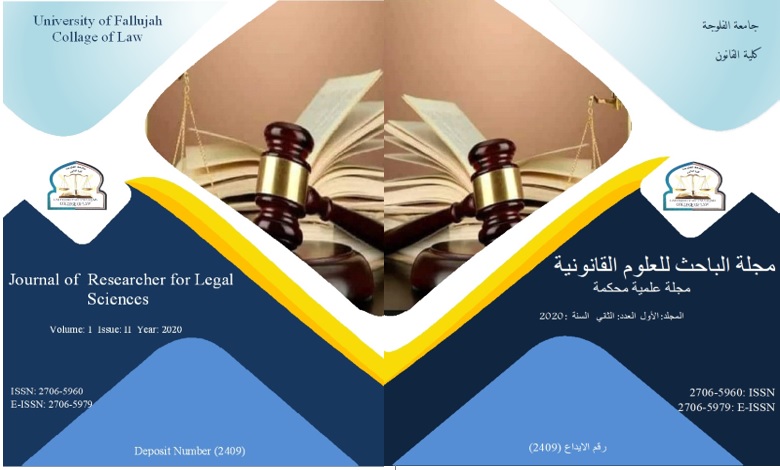Transferring intangible assets to others through will and inheritance
Doi:https://doi.org/10.37940/JRLS.2020.1.2.2
Abstract
The intangible asset is regulated in Iraq by several laws including civil Law No. 40 of 1951, Copyright Protection Law No. 3 of 1971, and Copyright and Related Rights Law in the Kurdistan Region/Iraq No. 17 of 2012, as well as the law of patent and industrial standards No. 65 of 1970. These laws do not include any reference to transferring such right to legatee and heirs. This generated a desire to find a precise mechanism to regulate transferring the intangible asset to heirs or legatee through wills and inheritance, and in case there is no heir nor legatee then the right will belong to the state, as it is referred in provisions of the Iraqi Personal Status Law No. (188) of 1959 and in the jurisprudence Islamic, where the financial rights are transferred to the heir or the legatee or together in shares of one unit. While the transfer of intangible rights related to the intellectual property is limited to protecting the work belonging to the author or the patent belonging to the inventor, this is subject of study, from any violation, deletion or modification that would harm the reputation and status of the.






